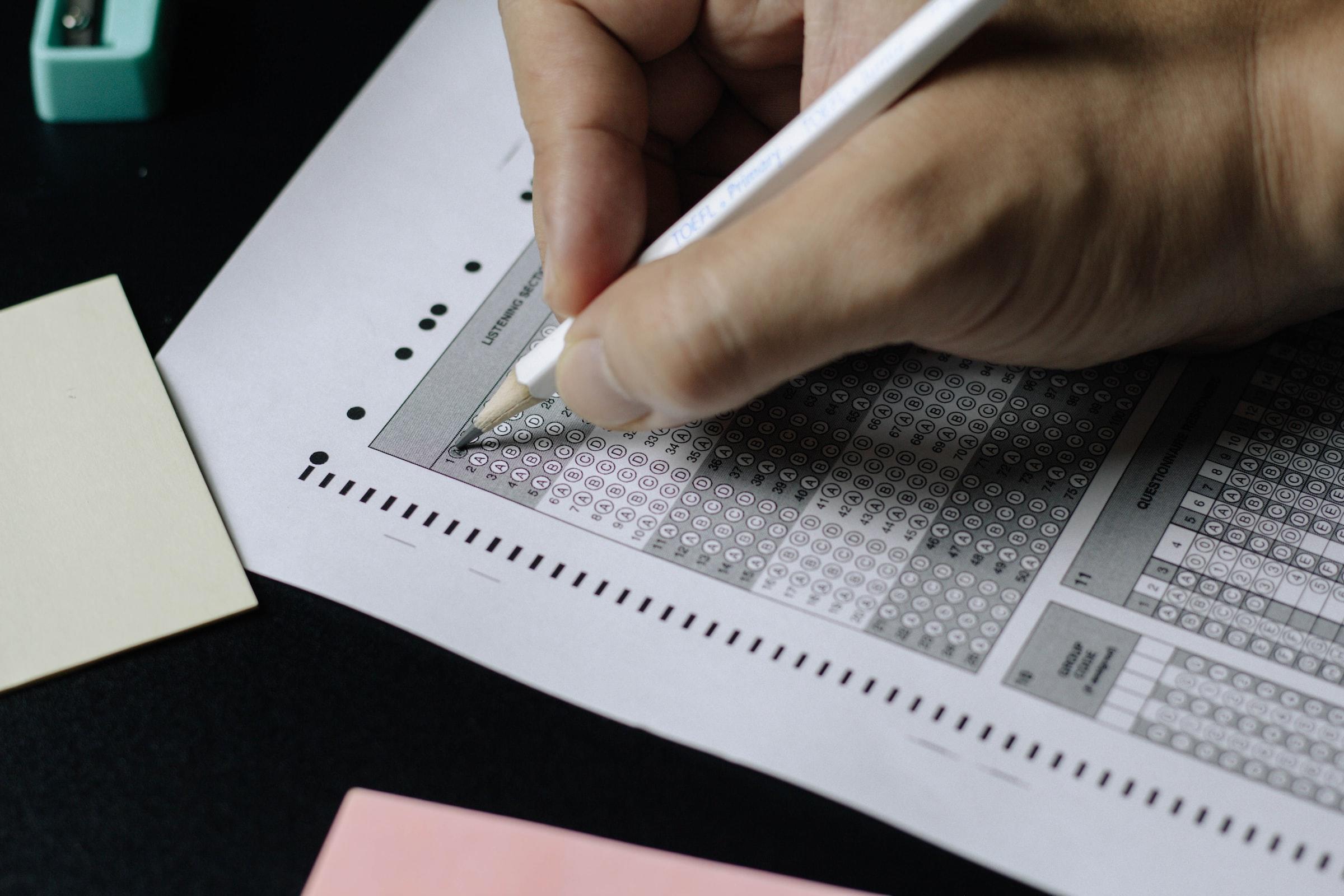Chapters
"One lie is enough to question all the truth." -Samaira Ansari
Have you ever heard of or seen a teacher cheating to get better grades? Unfortunately, it happens. A very interesting article written by the Guardian recently outlined the facts that there are enough teachers in the UK feeling the pressure to ‘inflate’ grades given to pupils by their Local Education Authority (LEA).
Internal reports have gone on to show that coursework and internal exams were exponentially high, even if the work didn’t merit such staggering grades. Unions say intra-school competition is so extreme that teachers are finding themselves pressured into boosting grades. These unethical practices are affecting the sanctity of education and the level of trust that we should bestow on teachers.
Therefore, in today's article, we'll consider why tutors cheat and what can be done to prevent it all from happening. Let's explore!
Want to give private lessons?
Join the Superprof community and share your knowledge with interested and motivated students.
Is There Enough Evidence to Prove That Some Teachers Cheat?

With ‘high-stakes’ testing and a culture of everything being driven by exam results, why do teachers cheat? Reading books and finding helpful evidence enlightens a person on the matter since we're presented with case studies that help us to see all the facts. For instance, the book, Freakonomics, was written by Steven D. Levitt and Stephen J. Dubner. What's really fascinating is the book’s opening chapter which looks at incentives and cheating and provides us with a handy investigation into teachers and school grades in the United States.
An interesting part of the book explained that, in 1996, Chicago Public School introduced the concept of high-stakes testing for all high schools in the area (representing some 400,000 pupils.) Thanks to the No Child Left Behind (NCLB) law signed by President Bush in 2002, federal law made such testing compulsory across the whole country.
Under previous rules, kids only failed a year if they were particularly difficult, lazy or inept. Under the NCLB law, children at the ages of 8, 11 and 13 are subjected to a standard, multiple-choice test at the end of their year in order to advance to the next ‘grade’ of high school. In the case of 13-year-olds, you needed to pass to get into what the USA calls the "Freshman" year, or first year of secondary schooling.
For their report, Levitt and Dubner asked the Chicago Public School system to provide information about school results in annual exams given to students. The CPS obliged and gave them every test result for every student in every grade between 1993 and 2000. This was a massive request since it equates to 30,000 students, 700,000 individual tests and 100 million individual answers!
After the successful reception of the documents, the next stage was to develop an algorithm that identified potential behaviour to suggest there was cheating going on. The following are a few potential things to look out for when spotting a cheating teacher’s classroom:
- First of all, for the test answers, there might be blocks of identical answers, especially on the harder questions. Very bright students scoring well on the first few questions isn’t an issue; however, those who didn’t perform so well overall getting the difficult ones right might be worth looking into.
- Secondly, observing any strange pattern in the student’s answers could be suspicious. A student getting the tricky ones right but getting the easier ones wrong could set off some red flags.
- Thirdly, a dramatic one-year improvement, far above the expectations set, could be accredited to a good teacher. However, a drop the next year suggests that something was unusual about the successful year.
The previous "signs" helped Levitt and Dubner in their investigation. They noticed many troubling factors such as the following:
-
In one class, there were 22 students. None of the students was particularly exceptional based on the early part of the test – very few had managed to get six consecutive correct answers anywhere on the test. Magically, 15 of the 22 students managed to post 6 consecutive correct answers towards the end of the test, where the tougher questions lay. This was even more suspicious when you consider the fact that the student’s results were previously uncorrelated. Also, t
It gets weirder, believe me. Out of the 15 students who had the suspicious answer pattern, nine of them had an identical string preceding that pattern including (get this) three out of four incorrect answers!
Incidents such as the one stated above happen in schools around the world, and when teachers cheat, it causes us to question their abilities. Is that all? Not necessarily, the investigation also uncovered that the class’s overall performance can be heavily scrutinised. For instance, in each grade, children are expected to reach a certain level to pass their exams and move forward. However, Levitt and Dubner found that another example stood out:
- A Class of 6th graders in the US who averaged 5.8 on their test for that year meant that they were on average one whole grade behind. However, a year earlier, they had fared even worse, averaging a 4.1 when they should have been at 5.8. This isn’t exactly a class of stop students. But, how did they fare going ahead? At 6th grade? They managed a whopping 1.7 grade improvement, scoring 7.5 on their test. Albeit impressive, until you look at their 7th-grade scores: which were an average of 5.5! So, what does that mean? It seems that the evidence points to the fact that the 6th-grade teacher adjusted the results of their students to undeservedly bolster their test results far ahead of the rest.

From the research that Levitt and Dubner analysed, the data presented found evidence of cheating in over 200 classrooms in Chicago, nearly 5%. That’s probably a conservative estimate, given that Levitt and Dubner concede the algorithm could only spot the most blatant of cheating.
The writers also cited a North Carolina survey where 35% of teachers said they had witnessed classroom cheating by other teachers with methods ranging from giving students extra time in exams, suggesting answers to the students, and, at worst, even physically changing the answers. To really get to the root of the problem, the CPS readministered the same test to 120 schools, barring teachers from any kind of contact with the exam papers or questions. They selected a group of those who were suspected of cheating and a group of those who weren’t. No one was told why the retest took place.
What were the results? In contrast, the teachers suspected of cheating had results that plummeted by a grade, sometimes even more. In the end, the evidence was strong enough that CPS fired a dozen teachers and many more were warned.
What's the bottom line of all this evidence? Well, although the findings of the study were in the United States and not the UK, the trends associated with cheating can be found everywhere since, unfortunately, it does take place. The testimonials alone from the PCW provide us with some clear suggestions that teachers are involved in some collusion or bad behaviour.
Why Do Teachers Try to Cheat the System?

Of all working professionals, it's almost impossible to think of a teacher cheating; they're usually the ones that catch others cheating the system. As confusing as it may seem to some, teachers regularly cheat. But, why? Why risk it all?
Let's consider the following reasons that might motivate a teacher to cheat:
- Teachers get promotions for good test results from their students,
- If the results aren’t good, teachers can get overlooked for raises and moving up the ladder. If the results are especially bad for long periods of time, teachers could find themselves being put on special measures or even fired,
- The pressures from schools and exam boards to get good results to improve a school’s reputation and get more access to funding may cause a teacher to cheat.
In conclusion, although teaching can be a high-stakes job with a lot of stress, that doesn't make cheating ok. The educators that cheat should not be allowed to continue to do so since the future of students is more important than anything else.
Want to give private lessons?
Join the Superprof community and share your knowledge with interested and motivated students.





Hi. Thanks for the read. It was useful to me as I am researching such phenomenon.
What does “testimonials” from the “PCW” make reference to?
If I missed it, sorry. I am working late at night.
Cheers